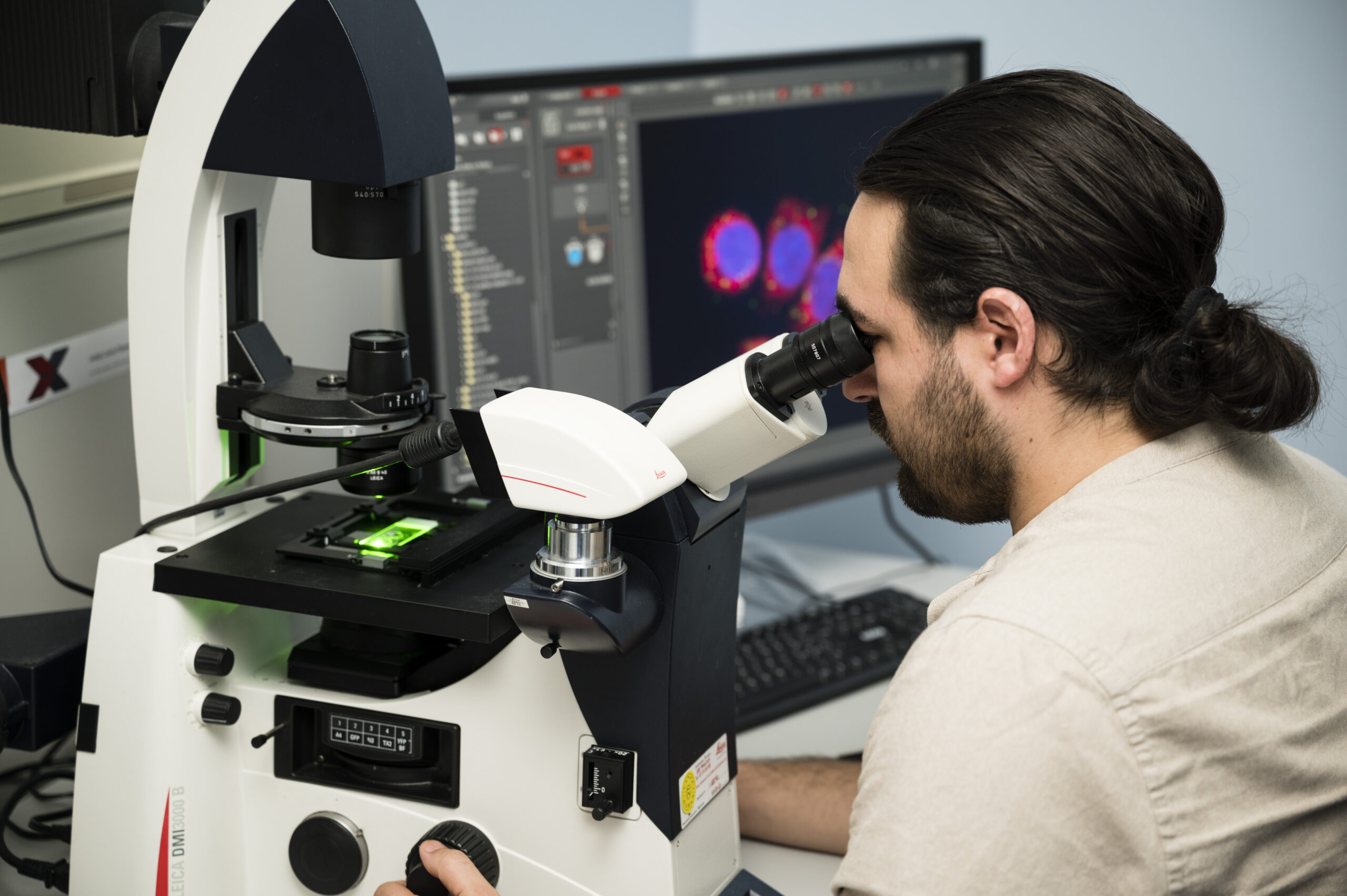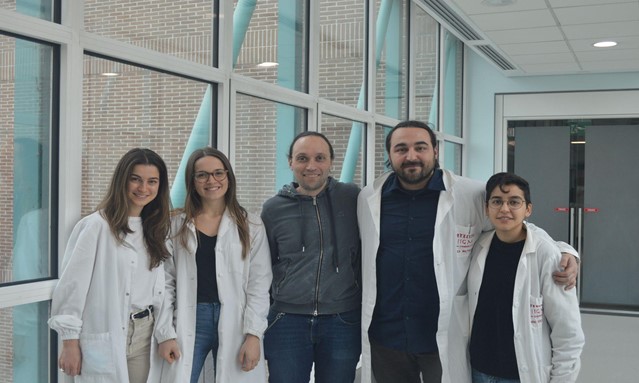Program
The major interest of the unit is to decipher the link between genomic instability, cancer stemness and anti-tumor immune response, in order to develop effective and durable immunotherapeutic strategies.
Specifically, our research activity focuses on the intrinsic and extrinsic mechanisms monitoring DNA replication and chromosome segregation, and, therefore, ensuring the maintenance of genomic and chromosomal stability. In this context, a particular interest is addressed to cancer stem cells (CSCs), the cellular subpopulation within the tumor mass that (i) shares with normal stem cells properties such as self-renewal and differentiation capacity; (ii) is responsible for the development, propagation and dissemination of neoplasms; (iii) is resistant to conventional and targeted therapies; (iv) drives tumor relapse; (iv) presents high adaptability to respond to changes in the tumor microenvironment; (vi) has an immunoprivileged nature.
The main mechanisms under investigation are:
- the replicative stress response (RSR);
- the cell cycle checkpoints preserving cell ploidy;
- the immunosurveillance directed against cells with aberrant karyotypes (i.e., aneuploid or tetraploid cells);
- the cellular response to mitotic stress;
- cell reprogramming toward stemness.
We move in two parallel domains. On the one hand, we study how deregulation of such control mechanisms contributes to oncogenesis and drives tumor progression, evolution and resistance to therapy. On the other hand, we seek to identify specific vulnerabilities of cancer cells and CSCs based on these mechanisms, to be used for prophylactic and/or therapeutic purposes.
In recent years, several patient-derived experimental models have been developed that can recapitulate the heterogeneity of the tumor system at all levels (genotypic, phenotypic and behavioral) and in all its components and subcomponents, including malignant cells (i.e., CSCs and differentiated cancer cells), and non-malignant cells (i.e., immune and stromal cells). Taking advantage of such systems, and in particular of 3D tumor spheres and organoids, our group attempts to analyze the evolution of the tumor system during tumor progression and in response to (immuno)therapy. The ultimate goal is to design novel antitumor strategies to be rapidly translated into the clinic.
To this end, we use and integrate a series of experimental approaches on commercial or patient-derived cell models aimed at (1) characterizing the mutational, cytogenetic, transcriptomic, proteomic and antigenic status (and landscape) and (2) determining dynamic parameters such as chromosomal instability, cell cycle checkpoint functionality, tumor heterogeneity, immunogenic potential and long-term response to therapies. Current approaches include next-generation sequencing (NGS) studies, karyotypic and functional analyses, videomicroscopy, microfluidics, and in vivo studies in humanized mice.
The identification of molecular mechanisms involved in the maintenance of genomic stability and immune response may lead to the discovery of new targets for the development of effective and safe immunotherapeutic regimens (PI: I. Vitale).

